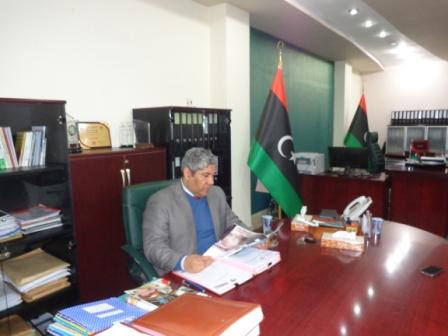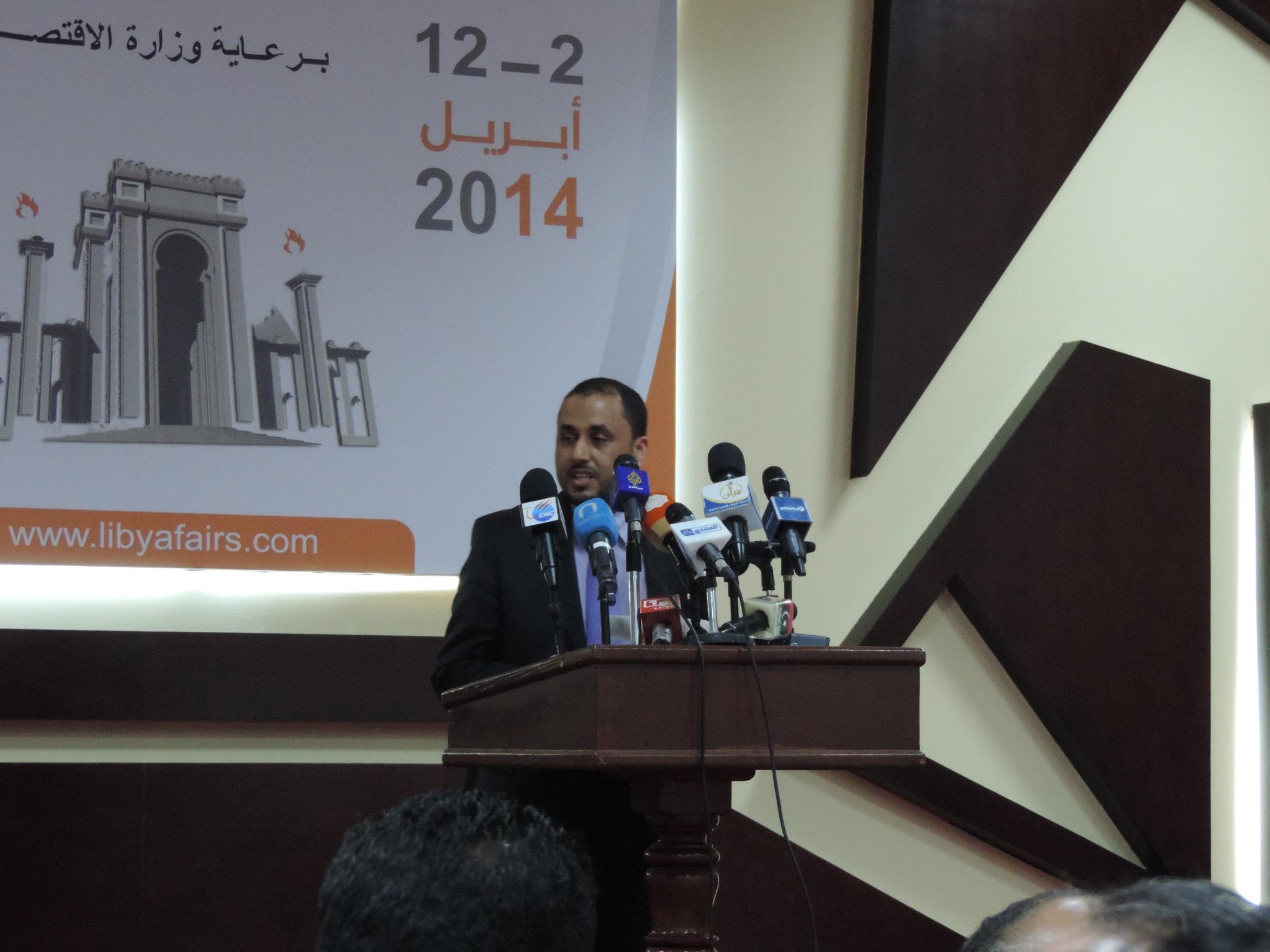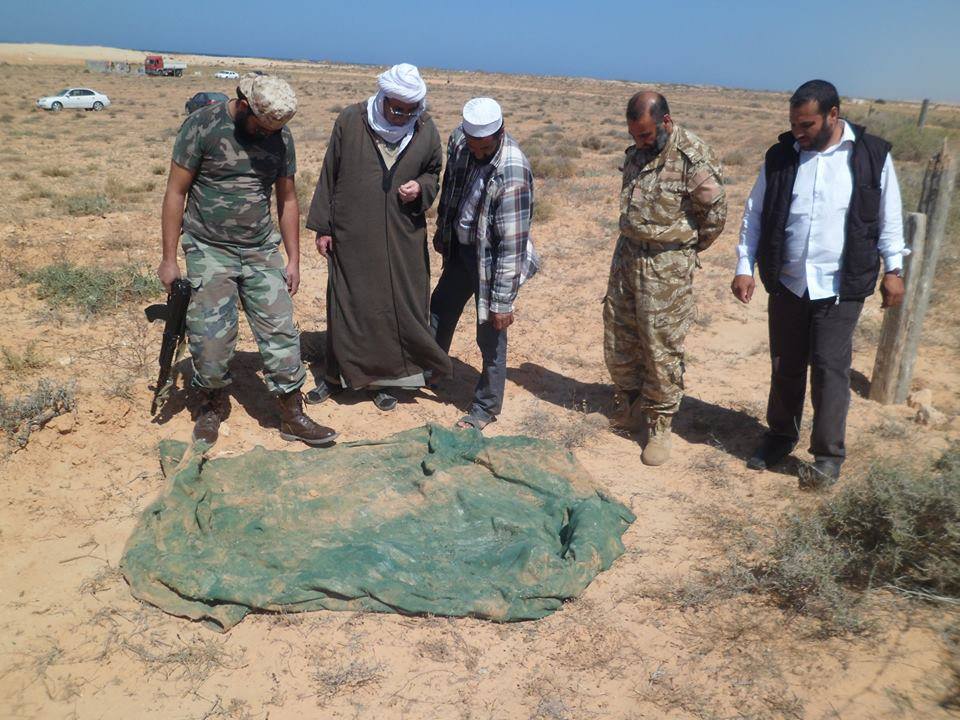By Ashraf Abul-Wahab.

Tripoli, 2 April 2014:
Along with the majority of other government ministries, the Ministry of Local . . .[restrict]Government is working with an inadequate budget and serious challenges even getting its hands on funds that have been cleared for disbursement. Thus Local Government Minister, Salah Al-Hassi, admits that his department is in a state of constant “crisis management”, trying to work with a budget which he says is not even really sufficient to cover the needs of the capital.
He explains that with a 2013 budget of LD 400 million, the ministry has had to support 68 local councils, 23 public cleaning companies and well as 33 municipal police forces, whose primary responsibility has always been trading standards and hygiene.
Under the former regime, local government comprised just 23 different administrative areas. Also now within the ministry’s responsibilities is the management of all the country’s historic sites, control of which was moved to Local Government from the Tourism Ministry last year.
And now the local government system is changing. In the wake of the revolution there was a hotch-potch of local councils – some which in the three years since have been elected, others, like Tripoli Local Council, self appointed. All are without the funds to operate adequately.
Now a uniform system of municipal councils is being implemented across the country. By the early summer, Libya will be a patchwork of over 90 local municipalities, all of them elected.
Hassi explained that the electoral law stipulates that any municipality with a population of more than a quarter of a million must choose seven general members. Constituencies with less than 250,000 people get to elect five councillors.
Additionally, in every municipality a further seat each is reserved for a female and a war wounded councillor.
Hassi was quick to point out that having one council seat reserved exclusively for a woman did not mean that women could not contest and win any of the other general seats. Indeed, he explained, it was perfectly possible for a council could have all female councillors. The seat reserved for the disabled was however different. If no qualified candidates came forward, then that seat would be added to the general slate.
Once elected, councillors have to choose the mayor from among their number at their first meeting. The Zeidan government had favoured the appointment of mayors by central government, just as it had originally backed the idea of local governors. Both options were however rejected by the GNC.
Hassi said there were no restrictions on any candidates nor on who could be chosen as a mayor. “That’s what democracy is all about,” he said, “The best qualified people may not get elected, but that is the decision of the electors, isn’t it?”
The ministry is however setting out to impose administrative and technical standards on each municipal authority, to ensure that it can discharge its responsibilities to the community. “The councillors are going to have to oversee and manage an integrated system, and such specialised work will need qualified officials” he said.
This highlights the main official concern of central government, which is that, left to their own devices, individual councils may go off the financial rails. Pointing out that the state is acting as the guarantor but not the sponsor of municipal authorities, Hassi says that it is obvious that there must be some central oversight.
“We are fearful of negligence in respect of the performance of councils and it could have a negative impact on the state as a whole and on its resources and expenditures,” he said. Thus each municipal bank account will be opened through the Ministry of Finance and there will also be a centrally-appointed financial controller.
“The truth is,” said Hassi, “we are not worried about financial corruption but we are worried about inefficiently working municipal councils, unable to run projects in the right manner and unable the determine their priorities”.
Hassi’s ministry is running a technical training programme with the assistance of the Dutch and the United Nations Development Programme. This exercise also involves private sector companies. The plan is to train at least 30,000 municipal government officials in efficient administration, accounting and good governance.
Hassi said that his ministry was seeking to boost the evolution of municipal councils by making awards to top performing authorities and the communities they serve. These will cover areas ranging from democratic participation and voter turnout, to best-run council and most sound and imaginative budget for 2015. [/restrict]










